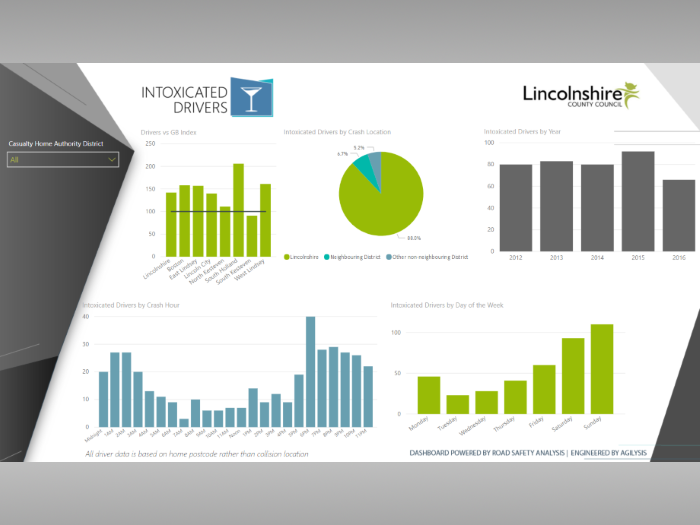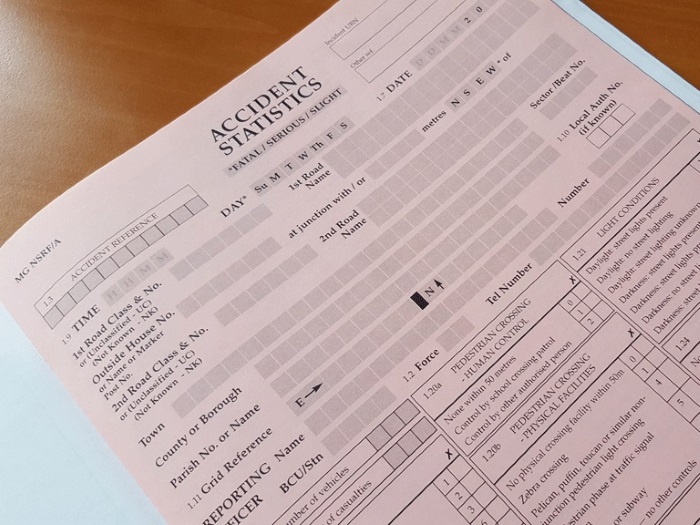
Child Casualties 2010
August 16, 2010MAST Updated
September 23, 2010Graduated Driver Licencing
The news wires are alive today with a story that ["New driver restrictions 'would save lives'] & Road Safety Analysis have been asked comment on the story behind the research.
The paper from Cardiff University, "Trends in Fatal Crashes Involving Young and Older Drivers in Great Britain", which has just been presented at the Safety 2010 World Conference puts forward the evidence that road risk affecting young drivers has increased relative to older drivers in recent years and that steps must be taken to address the issue.
Across the entire road safety profession there is absolute agreement that the young driver issue is an key priority, and the evidence that graduated driver licencing (GDL) could be a vital part of the mix is certainly there. A [review of several international studies into Graduated Licencing] has shown that these schemes are effective in reducing collision involvement of young drivers. Brake the road safety charity have also presented an [easily digestible breakdown of international experience on graduated licencing].
Here are a few small snippets of further analysis that might add something to the debate
Casualty Savings are Probably Too High
The reported estimates of lives saved from introducing GDL are around 200. RSA estimates that these reductions being projected into 2010 are considerably too high. On review of casualty data from 2004-08, the reported age of the related driver being 17-21 only affected 18% of fatal casualties, applied in that percentage to the record low number of deaths from 2009, this would represent 400 deaths where the related driver was in this age group. GDL would therefore have to deliver a 50% reduction in road deaths among 17-21 year old drivers, and no international study has ever shown GDL to deliver this kind of reduction.

Risk among rural dwellers is a critical issue
One of the criticisms of GDL is that it can adversely affect social mobility by hindering some young people from accessing work or education; this can be particularly true for those who dwell in rural areas. A mosaic profile of young drivers involved in crashes shows that these rural constituents are at far greater risk so the link between rural accessibility and road risk probably needs further investigation if GDL is to be seriously considered.
Figure 1: Mosaic distribution of young car drivers (16-19) indexed by population

Risk is Higher at Night
Among the key restrictions that are included within GDL programmes elsewhere is a restriction on nighttime driving. Where this can be supported it is likely to have a positive impact, the graph below shows how the proportion of collisions involving young drivers at night is indeed higher than for the rest of the driving population.
Figure 2: Time of day analysis comparing 16-19 year old drivers with the rest of the population
Is GDL likely to be introduced in the UK
That question is one that policy makers really need to consider, but as ever the question will be about balancing road risk with other social factors. The mood music around the current UK government is about reducing not increasing regulation on citizens so it is probably safe to assume that they will be unwilling to countenance the statutory changes needed to introduce GDL.
However, that does not mean that GDL is dead in the water, the principles can be adopted on a voluntary basis, and where parents are investing huge sums of money in driving lessons, cars and insurance they would be well advised to consider the restrictions that GDL imposes. These are proven measures to reduce risk for young drivers, and where parents and young people choose to adopt them we could reasonably expect to see their safety improve.
Road Safety Analysis in the news
Addressing this particular story, RSA have been on BBC News Channel, Radio 5 Live, BBC Radio Wales & BBC 3 Counties. Use 'listen again' via BBC Online or iplayer to catch these news items.



